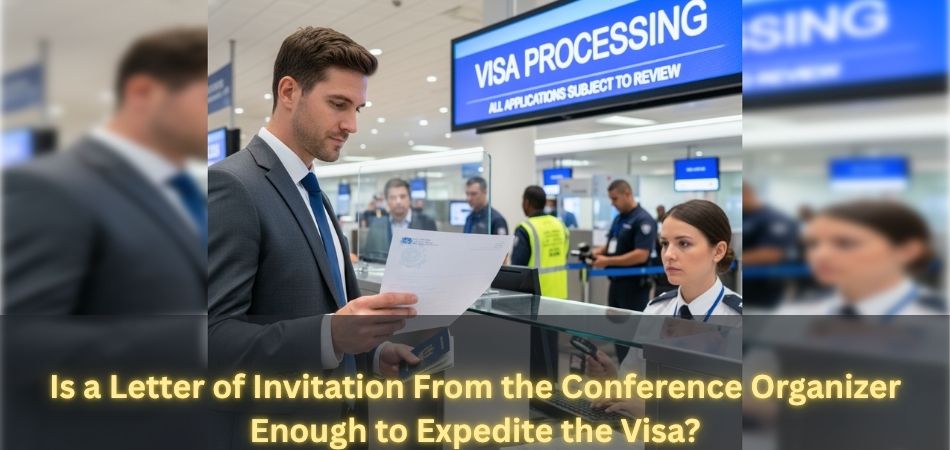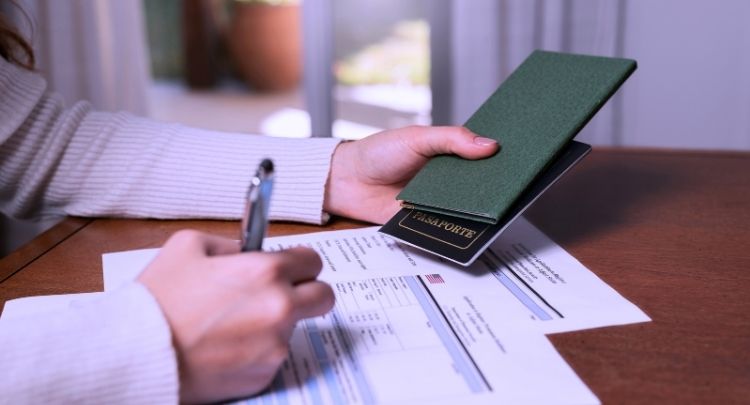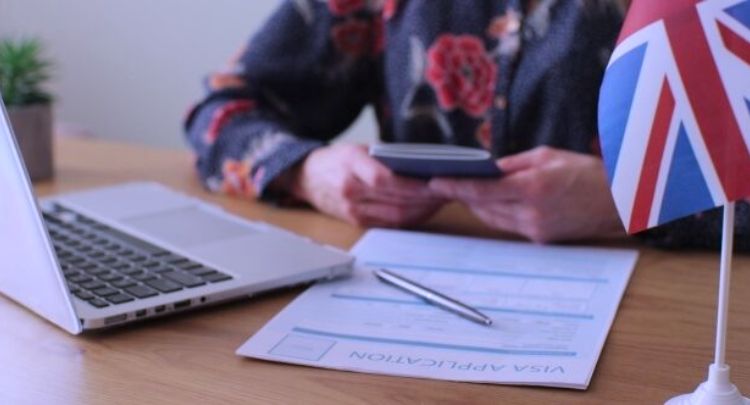Traveling for a conference often comes with excitement as well as stress, especially when it involves securing a visa on time. Applicants commonly wonder about the exact documents that can help speed things up, and one of the most asked questions is: Is a letter of invitation from the conference organizer enough to expedite the visa.
The short answer is no, the invitation alone cannot guarantee expedited processing. While it confirms your role and purpose, consulates and embassies require additional documents that prove urgency, financial stability, and institutional support before considering faster approval. It works as a starting point, not the final solution.
Understanding what counts most in an expedite request can save you time, effort, and disappointment. Keep reading to discover practical steps, essential documents, and insights that will help you strengthen your visa application and improve your chances.
Is a Letter of Invitation From the Conference Organizer Enough to Expedite the Visa?
Getting a letter of invitation from a conference organizer often feels like a significant milestone in the visa process. Many applicants assume that once this document is secured, the chance of faster approval is almost guaranteed. In reality, embassies and consulates treat an invitation as only one part of the overall assessment, not the deciding factor.

The letter is indeed useful because it confirms your purpose for travel and your acceptance into the event. However, on its own, it rarely convinces visa officers to speed up processing. Authorities look for additional evidence that shows urgency, responsibility, and credibility. Without these, the invitation acts more like a formality than a priority pass.
To avoid unnecessary delays and ensure you can attend important events such as upcoming conferences in Canada, the USA, or elsewhere, it is essential to prepare beyond just the invitation.
Limited Proof of Urgency
An invitation letter provides confirmation that you are welcome at the event, but it does not prove urgency. Visa officers need to see why missing the event would be problematic. Evidence such as session schedules, deadlines, or your confirmed role helps demonstrate that your presence cannot be postponed. Without this, the letter looks like a routine travel document.
Not a Guarantee of Approval
Consulates review thousands of applications, many of which include invitations. If these letters alone were enough, expedited visas would be granted to nearly everyone. Instead, embassies weigh additional factors such as your professional background, official role in the event, and institutional support. This ensures expedited approval is reserved for applicants with genuine time-sensitive cases.
Lack of Supporting Evidence
Visa applications are judged as complete packages. While the invitation outlines the purpose of travel, it leaves gaps in other critical areas such as financial stability, ties to the home country, and readiness for travel. Additional documents like sponsorship letters, travel itineraries, and proof of conference registration help fill these gaps and build a stronger request.
Equal Treatment of Applicants
Embassies must balance fairness for all applicants. Giving expedited approval based only on invitations would create unequal opportunities. This is why invitation letters are treated as supplementary, not decisive. To gain priority, you must build a case that stands out with extra documentation, clear deadlines, and strong institutional backing.
An invitation letter should be seen as the starting point, not the final step. By combining it with credible documents and a well-prepared justification, you give consulates clear reasons to consider your case faster. Use your invitation letter as leverage, but always support it with evidence that proves why your participation matters urgently.
What Other Documents Strengthen an Expedite Request?
Submitting a conference invitation alone often leaves gaps in your application. Visa officers want a complete picture that shows both urgency and credibility. Adding the right documents can significantly improve your case and highlight why faster processing is justified. Combine the following documents to build a strong expedited request.
- Employer or Institutional Endorsement Letter: A formal letter from your employer, university, or institution confirms your official role and importance at the event. This backing demonstrates that your absence could impact more than just your personal participation.
- Proof of Paid Registration/Fees: Payment receipts show your financial commitment to attend the conference. Visa officers see this as proof of seriousness, since you have already invested in the event, and missing it would cause personal and professional loss.
- Travel Itinerary With Exact Conference Dates: A confirmed flight booking or planned travel schedule highlights the urgency of your case. By showing dates aligned with the conference agenda, you make it clear that regular visa processing would prevent timely attendance.
- Financial Proof (bank statements/sponsorship): Strong financial documents reassure consulates that you can manage expenses without difficulty. Bank statements or sponsor confirmation help prove both financial stability and the ability to return after the event, strengthening overall credibility.
Each of these documents adds weight to your request and complements the invitation letter. Together, they create a complete, convincing case for why your visa application should be reviewed on priority, helping you align better with the expedited visa processing timeline for Conference participation.
How Does Your Role at the Conference Impact Visa Expedition?
Visa officers carefully review the applicant’s role in the event when deciding whether to prioritize a case. Not all invitations carry the same weight, and the level of responsibility you hold at the conference can make a noticeable difference in the outcome of your request. To understand how roles affect expedition chances, here are the main categories:
Keynote Speakers
Keynote speakers are often central to the success of a conference. If your name is on the official agenda, your absence could disrupt the program. Visa officers recognize this importance and are more likely to consider your expedite request valid when supported with schedules and organizer endorsements.
Panelists and Session Chairs
Panelists and session chairs contribute to both content and structure. A missing panelist changes the quality of the discussion, while a chair is responsible for managing the session flow. Highlighting these duties in your application shows the embassy that your presence is crucial for maintaining the program’s integrity.
Presenters of Research or Papers
Those presenting original research or academic papers often receive stronger consideration. Presenters contribute unique content that cannot be easily replaced by others. Submitting your acceptance letter or abstract confirmation helps visa officers see the unique value of your attendance and the time-sensitive nature of your role.
Regular Attendees
Attendees without active roles face more challenges in obtaining expedited consideration. Since their absence does not affect the program schedule, urgency is harder to prove. However, attendees can still strengthen their case by showing pre-scheduled meetings, networking responsibilities, or professional commitments tied directly to the event.
Your role at the conference plays a key part in how urgency is judged. Include the official agenda, program details, or acceptance letters that feature your name. The stronger your involvement, the better your chances of convincing consulates that expedited processing is necessary.
Practical Steps to Use an Invitation Letter Effectively
An invitation letter becomes truly useful only when it is part of a well-prepared application. By presenting it strategically, you show visa officers not just that you are invited, but also that your case deserves urgent consideration. The following steps will help you use your invitation letter more effectively.
Attach the Invitation to Your Expedite Request
Always include the invitation letter directly in your expedited request. Place it alongside other critical documents so visa officers can immediately connect your application with the upcoming event. This ensures the letter functions as clear evidence of purpose rather than a standalone attachment.
Include Employer or Academic Endorsements
Support the invitation with letters from your employer, university, or institution. These endorsements confirm that your role at the conference is significant and tied to broader organizational interests. Such documentation shows that your attendance matters not only personally but also to an official body backing your travel.
Highlight Deadlines in Your Justification Letter
Use your justification letter to connect the invitation with specific deadlines. Mention session dates, registration timelines, or presentation slots that prove urgency. Visa officers are more likely to prioritize cases where missing the event would disrupt planned activities or reduce the value of the applicant’s participation.
Use Clear and Natural Phrasing
When writing your request, incorporate phrases like expedite visa due to upcoming conference in a natural way. This direct but professional wording signals urgency without sounding forced. Clear phrasing helps officials quickly understand your request and why your case cannot follow standard processing timelines.
A well-prepared application combines the invitation letter with supporting documents, endorsements, and a clear justification. By following these steps, you maximize the impact of your invitation and present a stronger, more convincing case for expedited visa processing.
Common Misconceptions About Invitation Letters and Visa Approval
Many applicants rely too heavily on invitation letters, assuming they hold more power than they actually do. While useful, these letters are often misunderstood. Clearing up common myths helps applicants approach the visa expedition process with realistic expectations and stronger preparation.
Invitation Guarantees Visa
One of the most widespread myths is that an invitation letter automatically secures visa approval. In reality, embassies consider it just one part of the application. Without financial proof, institutional backing, and travel details, the invitation cannot guarantee either approval or expedited processing.
Paid Registration Means Automatic Approval
Applicants sometimes believe that paying conference fees makes expedited approval certain. Although payment shows commitment, it does not replace other requirements. Visa officers still need evidence of urgency, credibility, and ties to your home country before they can prioritize your case over regular applications.
Everyone With an Invitation Gets Priority
Not all invitations are viewed equally. Regular attendees without active roles often find it harder to justify urgency, while keynote speakers or presenters have stronger cases. Visa officers also review expedited appointment eligibility, which depends on the applicant’s role, supporting documents, and deadlines rather than the invitation alone.
Invitation letters are helpful but never decisive on their own. By understanding these misconceptions, you can prepare more effectively and avoid depending on a single document. A complete application with balanced evidence always carries more weight than an invitation alone.
Steps to Take if Your Conference Visa Is Still Delayed
Even with a strong application, delays in visa processing can still occur. Rather than losing hope, there are practical steps you can take to improve your chances or prepare alternatives. These actions demonstrate persistence, responsibility, and commitment to attending the event.
Contact the Consulate With Updated Documents
If your application is delayed, follow up with the consulate and provide any new supporting evidence. Updated travel itineraries, revised conference schedules, or additional financial proof can strengthen your case and remind officers that deadlines are approaching.
Request Additional Support Letters
Reach out to the conference organizer for supplementary letters that emphasize your role and importance. Organizers often provide stronger endorsements if they know your attendance is at risk. Such letters can be decisive in showing the event’s dependence on your presence.
Adjust Travel and Accommodation Plans
Explore options for rescheduling flights or accommodations with flexible policies. This reduces potential financial loss while giving you time for the visa decision. Flexible planning also signals to the embassy that you are organized and ready to adapt responsibly to processing delays.
Inform Organizers About Possible Absence
If delays continue, notify the conference organizers. They may step in to advocate on your behalf or provide documents highlighting your importance. This shows both honesty and professionalism, which can indirectly strengthen your credibility with visa officers if additional communication occurs.
Delays can be frustrating, but they are not the end of your journey. While approval is never guaranteed, persistence, consistent follow-ups, and complete documentation significantly improve your chances of receiving the visa in time for the conference.
Frequently Asked Questions
Reading about invitation letters and expedited visas often leaves applicants with a few practical doubts. To help you prepare better, here are some common questions people ask after learning how the process really works.
Can I Request an Expedited Visa Without a Conference Invitation?
Yes, you can. An invitation strengthens your case, but other urgent reasons like government sponsorship or professional deadlines may qualify as well. Always provide documents that clearly explain why you need faster processing.
How Early Should I Apply for a Conference Visa?
It’s best to apply at least three to four months before the event. This gives you time to handle delays or requests for extra documents. Early applications reduce stress and improve your chances.
Do Past Travel Histories Affect My Visa Expedition Request?
Yes, they can. A history of lawful travel and timely returns often builds trust with visa officers. While it won’t guarantee approval, it adds weight to your expedited application.
Can I Ask My Embassy Directly About Processing Times?
Absolutely. Most embassies allow applicants to contact them through official email or helplines. Asking politely for updates shows responsibility and can help you understand if an expedite request is worth submitting.
Should I Still Attend the Conference If My Visa Comes Late?
If your visa arrives after the event starts, attending may still be possible if travel schedules allow. However, always check the remaining duration and whether a late arrival makes sense. Flexibility matters.
Is Travel Insurance Necessary for Conference Visa Applications?
Travel insurance is not a strict requirement, but it’s highly recommended. It shows preparedness for unexpected issues like cancellations or medical emergencies. Embassies often view insured applicants as more responsible travelers.
Can Family Members Travel With Me on a Conference Visa?
Usually, family members need to apply for separate visas. Some consulates may allow dependents if the event is tied to professional or academic commitments. Always check the specific embassy rules before applying.
Concluding Lines
Many applicants worry about whether a simple invitation letter will fast-track their visa. The truth is that it helps, but it is not enough by itself to make an application stand out.
So, is a letter of invitation from the conference organizer enough to expedite the visa? Not really. It should always be supported with documents that show urgency, financial proof, and endorsements that highlight why your attendance matters.
Think of the invitation as the first step in a bigger process. By preparing a complete application, you give yourself the best chance of being considered for faster processing. Stay informed, stay prepared, and you’ll move closer to making your conference plans a reality.







